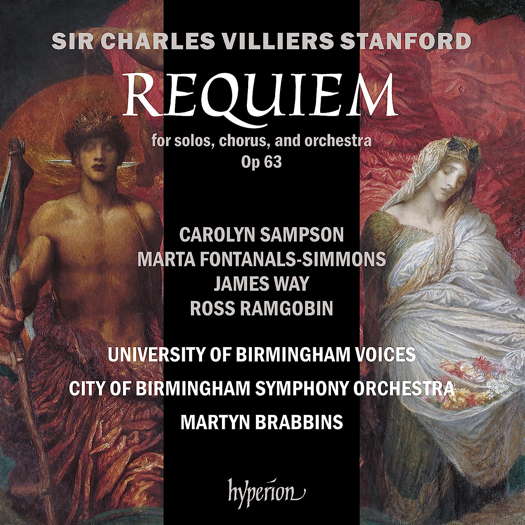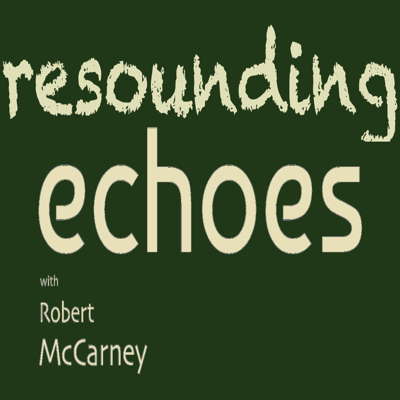 DISCUSSION: John Dante Prevedini leads a discussion about Composers, individuals or collective?, including contributions from David Arditti, Halida Dinova, Robert McCarney and Jane Stanley.
DISCUSSION: John Dante Prevedini leads a discussion about Composers, individuals or collective?, including contributions from David Arditti, Halida Dinova, Robert McCarney and Jane Stanley.

A Neglected Masterpiece
GERALD FENECH is impressed by Martyn Brabbins' recording of Stanford's Requiem
'... vibrant music-making ...'
Sir Charles Villiers Stanford (1852-1924) was an Anglo-Irish composer, music teacher and conductor of the late Romantic era. Born to a well-off and highly musical family in Dublin, Stanford was educated at the University of Cambridge before studying music in Leipzig and Berlin. He was instrumental in raising the status of Cambridge University Musical Society, attracting international stars to perform with it. While still an undergraduate, Stanford was appointed organist of Trinity College, Cambridge. In 1882, aged twenty-nine, he was one of the founding professors of the Royal College of Music, where he taught composition till the end of his life. From 1887 he was also Professor of Music at Cambridge.
As a teacher, he was not only a tough task master but also sceptical about modernism, and based his instruction chiefly on classical principles as exemplified in the music of Brahms. Among his pupils were rising composers whose fame would eventually surpass his own, such as Gustav Holst and Ralph Vaughan Williams. As a conductor, Stanford held posts with the Bach Choir and the Leeds Triennial Music Festival.
Stanford composed a substantial number of concert works, including seven symphonies, but his most famous pieces are his choral works for church performance, chiefly composed in the Anglican tradition. He also wrote nine operas, but none has endured in the general repertory.
Some critics regard Stanford, together with Hubert Parry and Alexander Mackenzie, as responsible for a renaissance in British music. However, after his conspicuous success in the last two decades of the nineteenth century, his music was eclipsed in the twentieth century by other famous composers such as Edward Elgar and Benjamin Britten, among others.
The Requiem was composed in 1897 in memory of the painter Frederick, Lord Leighton, who died in January 1894, a figure of enormous stature in English culture and society, and indeed in public esteem as may be gauged from the scale of his obsequies. Obviously, to celebrate a friend and artist of such stature was a huge undertaking, and for Stanford the Irish Protestant there was another twist of paradox in that here he was setting one of the central texts of the Catholic Church.
Listen — Stanford: Requiem aeternam (Requiem Op 63)
(CDA68418 track 1, 1:23-2:21) ℗ 2023 Hyperion Records Ltd :
Aside from the personal friendship, there was, in fact, a close alignment of artistic ideals between the two. For both men, 'Beauty is truth, truth beauty', and the rich, elaborate, classically inspired canvasses of Leighton found their parallel not in orgies of intricate counterpoint or instrumental extravagance, but in a poised, spacious, overall design.
Listen — Stanford: Lacrimosa dies illa (Requiem Op 63)
(CDA68418 track 20, 0:00-1:00) ℗ 2023 Hyperion Records Ltd :
Indeed, Stanford’s Requiem is very close to those by Berlioz and Verdi, including much use of the four soloists - here Carolyn Sampson, Marta Fontanals-Simmons, James Way and Ross Ramgobin - in vocal writing of grateful Italianate eloquence, in some places of almost operatic sweep, elsewhere of song-like simplicity, sonorous chordal choral writing, and an orchestral style that is largely content with economical underpinning of the vocal forces, though with telling use of instrumental solos, to broaden further the expressive resources.
Listen — Stanford: Sanctus (Requiem Op 63)
(CDA68418 track 26, 2:49-3:47) ℗ 2023 Hyperion Records Ltd :
This is a work that has been rarely recorded; if memory serves, this is only the second time, so this set is more than timely. Martyn Brabbins is a passionate advocate of the piece, and his Birmingham forces - the University of Birmingham Voices and the City of Birmingham Symphony Orchestra - deliver a performance that not only brings out all the masterly orchestration of the composer, but soloists and chorus sing throughout with a clarity and intonation that is just arresting.
Listen — Stanford: Lux aeterna (Requiem Op 63)
(CDA68418 track 30, 5:40-6:35) ℗ 2023 Hyperion Records Ltd :
This is vibrant music-making that makes a strong case for a neglected masterpiece. Sound, booklet notes and presentation are as fine as anyone could wish for.
Copyright © 9 July 2023
Gerald Fenech,
Gzira, Malta




